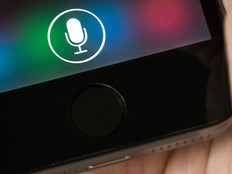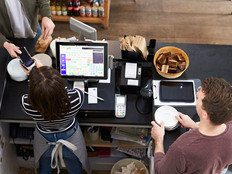Apple iOS Update Addresses FaceTime Crashes, Patches Security Holes
Apple introduced its latest iPhones, the 5c and 5s, to much fanfare in September, along with a major upgrade to its mobile operating system, iOS 7. Now, a mere two months later, millions of people own these new models, and millions more have downloaded and upgraded the software on their iPhones, iPads and iPod Touches.
To better secure all these devices and help them run more smoothly, Apple has made several upgrades to iOS 7 since its release. The latest, iOS 7.0.4, is now available for download.
In addition to a number of security patches (to protect users, Apple doesn’t disclose specifics regarding those) and bug fixes, iOS 7.0.4 delivers several software improvements and new features.
One significant issue addressed by the update is a problem with FaceTime videos failing and crashing for some users. Another enhancement improves the performance of iCloud Keychain, a new feature added with iOS 7.0.3 for Apple’s mobile devices and OS X Mavericks for desktops and notebooks. iCloud Keychain is a cloud-based service that syncs credit card data as well as Safari passwords across all of a user’s Apple products.
The latest iOS update is available through iTunes or wirelessly by going to Settings, then General and selecting Software Update from your mobile device. It is compatible with the iPhone 4, iPhone 4s, iPhone 5, iPhone 5c, iPhone 5s, third and fourth generation iPads, iPad Air, iPad mini, iPad mini with Retina Display, as well as the Fourth and Fifth generation iPod touches.
iOS 7.0.4 follows iOS 7.0.3, a somewhat major upgrade that, in addition to iCloud Keychain, delivered the following:
- Provided a password generator that enables Safari to suggest unique and hard-to-guess passwords for online accounts
- Updated the screen lock to display “slide to unlock” when fingerprint scanning is in use restored ability to search the web and Wikipedia from Spotlight
- Fixed bugs that prevented iMessage from activating and sending to some users
- Improved iWork apps stability
- Fixed accelerometer calibration
- Addressed an issue that degraded voice quality for Siri and VoiceOver
- Fixed a bug that allowed users to bypass the screen lock passcode
- Enhanced the Reduce Motion settings to minimize both animation and motion
- Fixed an issue that caused VoiceOver input to be too sensitive
- Updated the Bold Text setting to also change dial pad text
- Fixed an issue that caused supervised devices to become unsupervised when updating software
Reinventing Security on the New iPhone
The most noteworthy feature of the iPhone 5s is its integrated fingerprint identity scanner, which spells a new day for mobile-device security. Called Touch ID, the fingerprint reader, embedded in the home button, is based on technology acquired by Apple when it bought AuthenTec for $356 million in July 2012. The sensor’s main purpose is to enable faster and more secure logons by iPhone users, according to Apple.
Apple’s Phil Schiller noted during his iPhone 5s introduction in September that the scanner is “an innovative way to simply and securely unlock your phone with just the touch of a finger.” More important, the new iPhone’s biometric reader promises to be a boon to BYOD security because it addresses the problem of end users who don’t set up a passcode on the smartphone.
According to Schiller, nearly half of iPhone users never implement passcodes because “unfortunately, some people find that's too cumbersome, so they don't set it up.” That’s a huge problem for businesses that allow employees to keep company data on their iPhones, either as part of a BYOD initiative or more traditional company-allocated mobile device plan.
iPhone users aren’t the only ones who are password challenged. McAfee reports that although nearly half of smartphone users keep important passwords, PIN codes or credit card details on their handset, and a third maintain sensitive work-related information on their device, only one in three actually password-protect their smartphone. And, while tens of thousands of smartphones, including iPhones, are lost every year, Consumer Reports estimates that nearly 1.6 million smartphones were stolen nationwide in 2012 alone.







